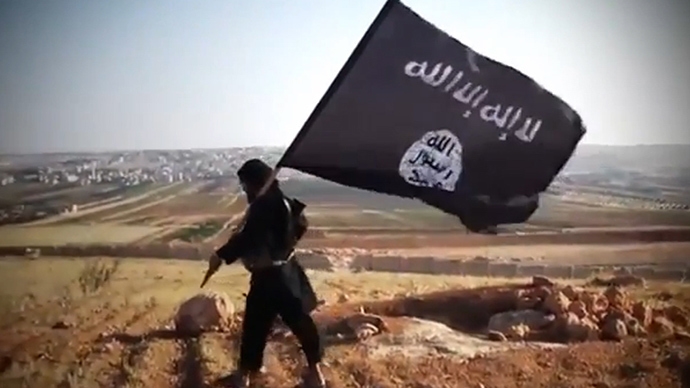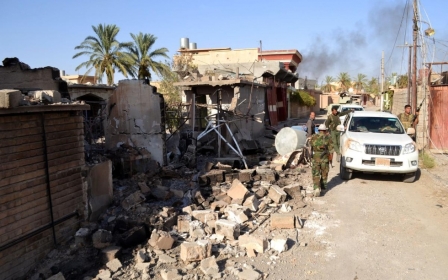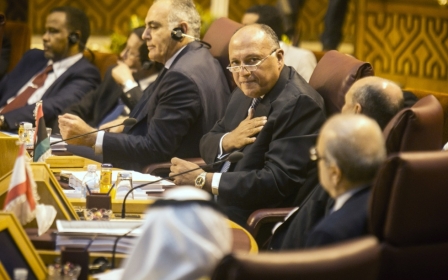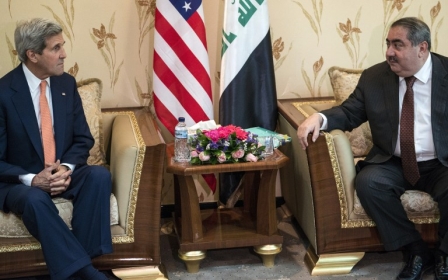What is the anti-Islamic State alliance actually doing?

The United States is taking the lead in an international coalition aimed at repelling and defeating the Islamist extremists marauding across parts of Iraq and Syria.
Jihadists from the so-called "Islamic State," still referred to by US officials by their former acronyms ISIS or ISIL, have murdered thousands and declared a Muslim caliphate in the Middle East.
More than 40 countries - mainly Western powers or Middle Eastern allies - have committed to form a bulwark against the movement, the State Department said, although it has only named 25 of them so far.
NATO member Turkey, was the only Middle East country to join in the first wave with analysts suggesting that the Gulf States were in particular proving hesitant.
"Trust is so low, especially in the Gulf region, for [US President Barack] Obama's leadership quality and the way he manages foreign policy,” Mustafa Alani, the director of the security and defence department at the Gulf Research Center in Geneva told CBS news. “I don't think any country is going to put its hand up or neck out by accepting an alliance with the US that easily.
“These countries can offer a lot, but I think any cooperation here is going to be conditional," Alani added.
Even though Iran and the United States both support Iraqi forces fighting IS, Tehran and Washington have both said they will not cooperate with the other. Syria is also a non-participant.
Military Assistance:
The United States has conducted 148 air strikes against IS targets in Iraq since 8 August and it has more than 800 military personnel to safeguard its Baghdad embassy and to assist Iraq's army.
It is talking with Iraq's new government about "accelerating efforts," including additional training and equipping of Iraqi Security Forces.
President Barack Obama will host a UN Security Council session 24 September on the threat of foreign fighters in Iraq and Syria.
Major partner Britain said on Wednesday that it will ship £1.6 mn ($2.6 mn) worth of heavy machine guns to Kurdish forces fighting IS in Iraq. It is also considering providing training to the Kurds.
French President Francois Hollande announced at NATO that France would participate "in accordance with international law" and at the request of the Iraqis.
Few details have emerged other than Paris already delivering weapons, but a diplomatic source said it would be "logical" that France participate in air strikes.
Canada has authorized a 30-day deployment of "several dozen members of the Canadian armed forces" to help advise and assist Kurdish forces.
Australia's military transport planes have delivered weapons to Kurdish forces. Canada insists it will not send combat troops to Iraq, but in a Tuesday interview with ABC radio, Foreign Minister Julie Bishop suggested it may send military trainers and advisers.
Germany said it will provide military equipment and aid to Kurdish forces. Italy is also slated to send military equipment to Kurdish forces, it was announced on Wednesday.
Albania has provided military equipment to Kurds, Estonia is donating one million artillery shells and Denmark's parliament has authorised its planes to resupply Iraqi and Kurdish forces.
The Philippines is prepared to "do its part" in an alliance, Foreign Affairs Secretary Albert del Rosario told AFP, but no further details were given.
Poland has offered military equipment to Kurds and delivered tons of assistance to Christian and Yezidi refugees via its C-130 aircraft. On Monday Defence Minister Tomasz Siemoniak said Poland was waiting for the unveiling of US strategy before formulating next steps.
US President Barack Obama is now finally expected to unveil his strategy on Wednesday evening, while Secretary of State John Kerry kicked off a regional tour on Monday aimed at building support.
Humanitarian aid:
Japanese Foreign Minister Fumio Kishida said Tuesday that Tokyo would support Iraq's "anti-terrorism fight" following inauguration of Prime Minister Haidar al-Abadi's new government in Baghdad.
Japan has committed $7.8 mn in aid through the UN humanitarian office OCHA.
Switzerland has pledged more than $10 mn in aid to OCHA. Norway committed at least $6 mn, Denmark pledged $3.8 mn, and Australia $4.6 mn.
Finland, Hungary, Ireland, Italy, Luxemburg, New Zealand, South Korea and Spain have also pledged assistance.
Turkey is providing 100 truck-loads of aid and a refugee camp near the Iraqi border.
The US, Britain, Canada, France and Australia have also either provided relief or conducted air drops.
The Gulf States:
A crucial element to the coalition are Arab and Gulf states, and US Secretary of State John Kerry headed to the region to rally allies. He visits Saudi Arabia on Thursday where he meets foreign ministers of six Gulf states plus Egypt, Jordan and Iraq.
Gulf oil monarchies, fearing militant threats at their doorsteps, announced their opposition to IS in August, and await details of Washington's strategy, to be announced late on Wednesday.
Saudi Arabia - whose highest religious authority branded IS Islam's "number one enemy"- has committed $500 mn to the UN refugee agency, according to the State Department. Analysts said Riyadh's role would consist primarily of political and logistical support.
The same goes for Bahrain, home to the US Fifth Fleet. Kuwait, which has contributed $10 mn in humanitarian assistance, could also lend use of its military facilities.
Qatar - which furiously denies reports it has funded IS causes - could play a vital role. Its Al-Udeid Air Base hosts Centcom, the US military command responsible for the Middle East and Central Asia.
Regional US ally Egypt said it will support Washington's efforts to repel IS, but Cairo's involvement "must be under a UN mandate," an Egyptian foreign ministry official said.
The United Arab Emirates said it was prepared to join in a sustained effort to confront IS.
On Monday the Arab League voted to take urgent action to combat IS and any like-minded groups, although the organisation did not say it would explicitly back the US coalition and it remains unclear what action its members will take.
Middle East Eye propose une couverture et une analyse indépendantes et incomparables du Moyen-Orient, de l’Afrique du Nord et d’autres régions du monde. Pour en savoir plus sur la reprise de ce contenu et les frais qui s’appliquent, veuillez remplir ce formulaire [en anglais]. Pour en savoir plus sur MEE, cliquez ici [en anglais].




